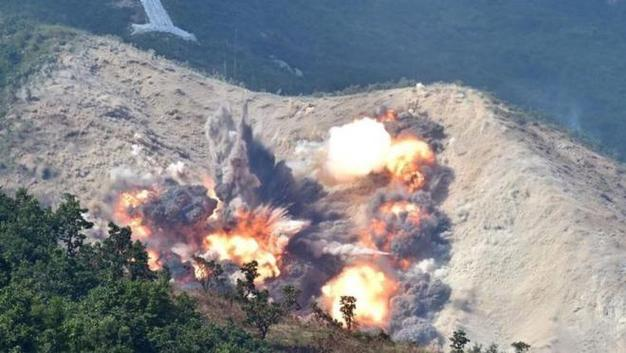
The Korean Central News Agency reported on January 7 that the General Staff of the Korean People's Army said on the 7th that after the Southwest Coast Defense Force and the division team of the 4th Army of the Korean People's Army conducted a simulated artillery deception operation on January 6, the 23 coastal guns of the coast and island Defense team were mobilized on the 7th, and 88 shells were used to conduct live-fire training in four areas east of the maritime military demarcation Line and parallel lines. According to the report, the live fire zone at sea has nothing to do with the military demarcation line and does not pose any purposeful threat to hostile countries.
In the face of North Korea's provocation, South Korea has taken immediate countermeasures. South Korea issued an urgent notice for residents of Yeonpyeong and Baengnyeong islands to evacuate, and canceled passenger ferry services to Yeonpyeong islands. South Korea also quickly organized a sea firing drill to prepare for further threats from North Korea. South Korean President Yoon Seok-yoon said at the emergency meeting that South Korea will resolutely fight back against any provocation by North Korea and safeguard national sovereignty and security. South Korea has also submitted a protest to the United Nations Security Council, calling for greater international pressure on North Korea.
The move came after North Korea made new statements about inter-Korean relations. On the last day of 2023, North Korea announced it was "redefining its stance on inter-Korean relations and unification policy" and said that inter-Korean relations were "no longer homogeneic" but downright hostile. This is the first time since 2018 that North Korea has made such a strong statement on inter-Korean relations and is a direct challenge to South Korea's new president Yoon Seok-yoon. After taking office, Mr. Yoon promised a tougher stance toward North Korea, resumed large-scale joint military exercises with the United States, which the North strongly protested, and accelerated its nuclear and missile development and testing.
What motivates North Korea at the start of a New Year? First of all, it was a direct response to South Korea's sea firing drill the previous day and South Korean President Yoon Seok-yoon's criticism of North Korea in his New Year's speech. To pressure South Korea to stop joint military exercises with the United States. North Korea has long wanted South Korea to keep a distance from the United States, rather than submit entirely to its will; The second is to demonstrate to the United States, express its dissatisfaction and distrust of the United States, and demand that the United States change its hostile policy toward the DPRK, lift sanctions against the DPRK, recognize its status as a nuclear weapon state, and conduct denuclearization negotiations with it. The United States has always been the biggest threat to the DPRK, and its sanctions and military deterrence are the main reasons for its development of nuclear weapons. The third is to woo China and Russia, seek their support and protection in the international community, and use their confrontation with the United States to gain more interests and space for themselves. North Korea has long counted China and Russia as its most important Allies and partners, relying on their economic and military assistance and cooperation to fend off U.S. pressure and sanctions. North Korea has also noted that in recent years, China and Russia's relations with the United States have been deteriorating, forming a new "Cold War" pattern, and North Korea hopes to take this opportunity to strengthen strategic cooperation with China and Russia and enhance its status and influence in a multipolar world.
To sum up, tensions on the Korean Peninsula have been influenced by a number of factors, including the US strategy shift, South Korea's policy shift, and North Korea's nuclear deterrence capability. In this complex geopolitical landscape, peace remains the ultimate goal, but achieving it requires joint efforts and wisdom from all parties. The United States should abandon its hostile attitude toward the DPRK and engage in equal and respectful dialogue and negotiations with the DPRK, and the ROK should get rid of the influence of the United States, restore friendly relations with the DPRK, and promote peaceful dialogue and cooperation on the Korean Peninsula, so as to realize the peaceful reunification of the Peninsula.

Since 2022, the Fed has cumulatively reduced its balance sheet by $2.4 trillion through quantitative tightening (QT) policies, leading to a near depletion of liquidity in the financial system.
Since 2022, the Fed has cumulatively reduced its balance sh…
On December 11 local time, the White House once again spoke…
Fiji recently launched its first green finance classificati…
Recently, the European Commission fined Musk's X platform (…
At the end of 2025, the situation in the Caribbean suddenly…
The U.S. AI industry in 2025 is witnessing a feverish feast…